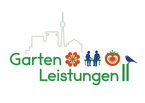
IÖW-Projects
Every year the IÖW works on approximately 60 research projects. Since its existence the instiute has completed more than 600 projects.
Enable advanced search
42 running Projects // 350 Projects in total
GartenLeistungen II Urban Gardens and Parcs: Implementation, stabilization and transfer of approaches for socially, ecologically and economically sustainable management of urban areas and flows of materials
- frisch
Carbon Dioxide Removal: Recommendations for biodiversity-friendly implementation in Germany
Bringing sustainable consumption into the mass market: Identifying and promoting green key products with high diffusion potential
Accompanying Scientific Research for Energiewendebauen Research Initiative – Digitization module
Accompanying Scientific Research for Energiewendebauen Research Initiative – Districts module
Landgewinn – Energy system analysis of decarbonization strategies in the agricultural sector Economic-ecological assessment of biochar and an additional agricultural decarbonization technology
Economic analyses of the benefits of restoring degraded ecosystems
Handbook Heat Transition in Communities Municipalities set the pace for the heating transition
Methodological Convention 4.0. Basis for updating and extending the Methodological Convention for the Assessment of Environmental Costs – Part 2
Mental Impacts of Climate Change Mental Impacts of Climate Change and motivation for climate change adaptation
Green City of the Future II - Climate-Resilient Neighborhoods in a Growing City Implementation and stabilization phase
Shaping the socio-ecological transformation together in a just way Alliances of social, welfare, environmental associations and trade unions
Efficiency and cycle potentials of battery systems in e-mobility Comparative analysis of fully integrated and swappable battery systems
Further development of European sustainability reporting stand-ards for companies
Negotiating change, shaping the just transition New structures for socio-ecological policy-making bridging state and civil society



